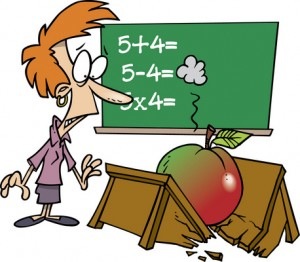 What’s A Calorie?
What’s A Calorie?
Technically, a (small) calorie is the amount of energy required to raise the temperature of one gram of water by one degree Celsius (1.8 degrees Fahrenheit) at one atmosphere of pressure. (Aren’t you happy you now know that?) Food or dietary Calories are actually kilocalories (1,000 calories = 1 kilocalorie and raise the temperature of one kilogram of water one degree Celsius). It gets kind of confusing because food labels and diet plans often use the words “calorie” and “Calorie” interchangeably. Calorie with a capital C means kilocalories (sometimes you see kcal for kilocalories on the nutrition label). Those are the kind that are used in reference to food, but they’re often improperly written with a lower case “c.”
What’s The Point Of Measuring Calories?
We get the energy we need to survive from food — which powers us like gasoline does for a car. Food is made up of different nutritional components, or building blocks, each with a different amount of energy. The components, called macronutrients, are carbohydrates, protein, and fat. A gram of carbohydrate contains 4 Calories, a gram of protein has 4 Calories, and a gram of fat has 9 Calories. (FYI, alcohol has 7 Calories per gram.) So if you know how much fat, protein, and carbs are in a food, you can figure out how many Calories, or how much energy, is in it.
How Many Calories Are In A Pound?
There are 3500 Calories in a pound. If you take in 3,500 Calories beyond what your body needs for energy, your body stores it as a pound of fat – its way of saving energy for the next theoretical famine waiting in the wings. Your body needs a certain number of Calories to sustain itself – for the energy necessary for metabolism and physical activity. If your body uses up 3,500 calories more than you take in and use, you lose a pound.
Energy In And Energy Out
To keep in your body in balance and not lose or gain any weight, the magic formula is: energy in = energy out. If you take in (eat) the same number of calories that you burn (through activity and physiological processes) you maintain your weight. If you eat more than you burn you gain weight, if you eat less than you burn, you lose weight.
Does The Type Of Calorie Make Any Difference?
The short answer is NO. When Calories are used as an energy source, it doesn’t matter whether they come from carbs, protein, fat, or alcohol. When you eat them they are converted to energy. If they’re in excess of what your body needs for energy, the extra calories are stored as fat.
If you understand your body’s energy needs, you can figure out what kind of food you need to eat. How many calories your body needs is mostly determined by your height, age, weight, and gender (the main components of your basal metabolic rate) and your level of activity. Any physical activity burns calories. The average person (155 pounds) burns about 100 to 105 calories for every 2000 steps s/he takes.